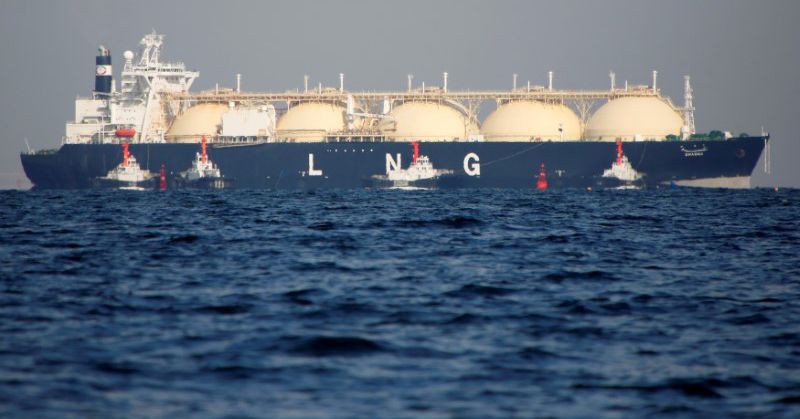SINGAPORE/SHANGHAI/LONDON – Global prices for natural gas are at multi-year highs, with high temperatures driving up demand for power generation in the northern hemisphere for air conditioning and as traders in some regions replenish stocks ahead of winter.

Source: Reuters
Prices for liquefied natural gas (LNG) cargoes delivered in Asia rose above $13 per million British thermal units (mmBtu) this week, the highest for this time of the year since 2013, while Dutch wholesale and U.S. natural gas prices also rose to multi-year highs.
“Post-lockdown demand recovery, together with a wide collection of exogenous hits to supply/trade flows worldwide, have lifted gas prices (year-to-date) in all key markets,” analysts from investment bank Liberum said in a note this week.
June shipments to Japan climbed 18% from the previous month to a three-month high of 6.01 million tonnes, Refinitiv Eikon shiptracking data showed, as utilities are ensuring adequate power supply in anticipation of a hot summer and ahead of the Tokyo 2020 Olympic Games, due to start on July 23.
China imported about 6.4 million tonnes of LNG in June, a drop from May but still about 26% higher than the same period last year, the data showed.
“We are seeing a lot of buying now (in China) in preparation for winter after last year,” a Singapore-based LNG trader said, adding that buyers are undeterred by high spot prices even though it means a loss for them, with Chinese domestic wholesale prices currently lower than spot LNG prices.
A China-based trader said robust buying from China is also being spurred by energy security reasons as they want to avoid a repeat of last winter, when spot prices rose to above $30 per mmBtu, spurred by gas shortages.
The two traders declined to be named because they are not authorised to speak with media.
EUROPE RALLIES
In a knock-on effect of high spot Asian LNG prices, benchmark European gas prices soared and the front-month price at the Dutch TTF hub hit a record high on Thursday morning at 36.25 euros per megawatt hour.

When Asian spot LNG prices climb to multi-year highs, it is more attractive for exporters to sell their cargoes there, resulting in a dearth of cargoes for Europe.
Record-low storage levels, summer maintenance outages and record high carbon prices have also stoked buying.
“Europe is in a fight for liquefied natural gas (LNG) imports with Asia but right now it’s losing, since TTF prices are not high enough,” said Bjarne Schieldrop, chief commodities analyst at Nordic corporate bank SEB.
“It is a global natural gas price rally, not a European one, and EU natural gas prices need to move higher and faster than Japanese LNG to attract more LNG imports,” he added.
Russian gas supply to Europe was cut 15%-20% from 2019 levels, exacerbating an already low-inventory level situation in Europe, Liberum analysts said.
This week, Russia’s Gazprom (GAZP.MM) did not book any interruptible transit capacity through Ukraine for July despite planned maintenance on alternative routes and its storage stocks in Europe are only 20% full, which could put its claim of being Europe’s biggest gas supplier at risk, James Huckstepp, manager of EMEA Gas Analytics at S&P Global Platts, said.
“Although Gazprom seems intent on holding back flows until the start-up of Nord Stream 2, they remain exposed to demand fluctuations and/or transport constraints, which could necessitate them buying gas at European hubs in the short term to meet customer nominations,” he added.
In the United States, natural gas futures at the Henry Hub benchmark in Louisiana hit 30-month highs this week on forecasts for higher-than-usual U.S. air-conditioning demand over the next two weeks, rising exports and lower-than-usual gas supplies in storage for this time of year.
“Despite the rise in the Henry Hub, (U.S.) LNG exporters remain relatively unphased, as their margins continue to expand thanks to increasing international prices,” analysts at Gelber & Associates in Houston said, “Arbitrage margins that were estimated to be $4-5/MMBtu a month ago are now approximated to be upwards of $6/MMBtu.”

